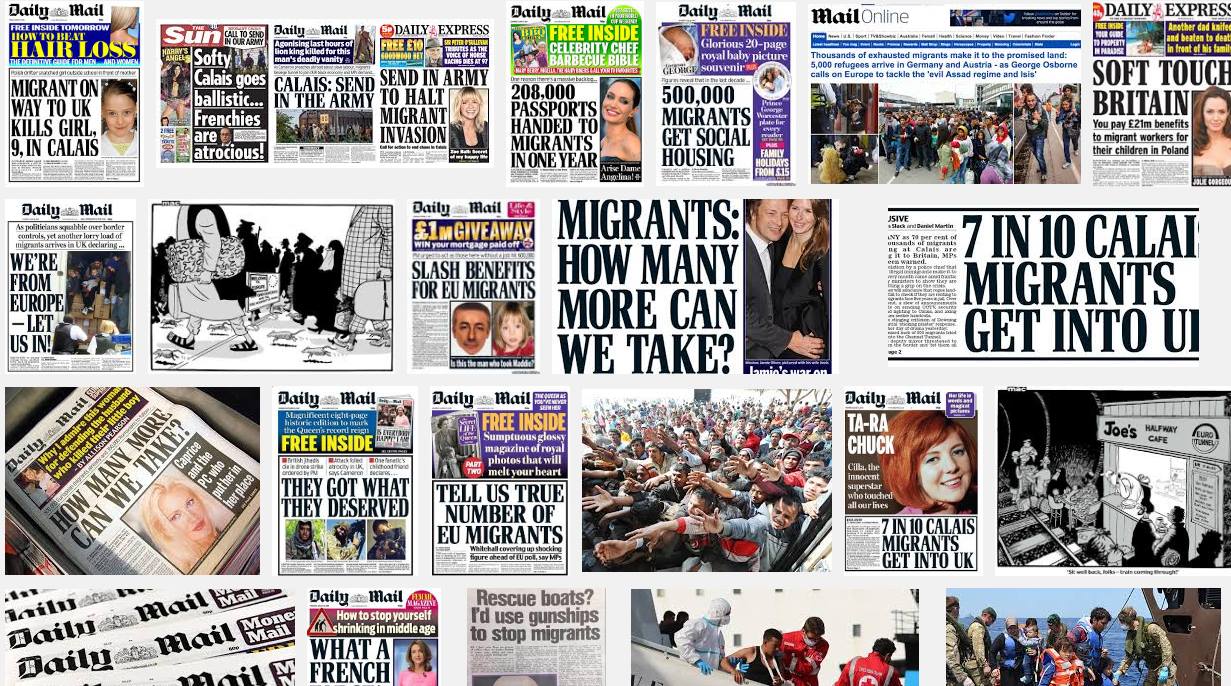Following calls by campaign group Stop Funding Hate (SFH) for the Co-op Group to pull advertising from certain newspapers, chief executive Richard Pennycook says the retailer is exploring how future policy can address advertising decisions.
Co-op Food and Co-op Insurance advertise regularly in the Daily Express newspaper, which the SFH campaign says is “notorious for its relentless campaign against minority groups, including refugees and migrants”.
Last year the Daily Express was named by the UN High Commissioner for Human Rights in a statement condemning “decades of sustained and unrestrained anti-foreigner abuse, misinformation and distortion” by the UK media. In June, hate crime experts at the University of Leicester warned that “the recent spate of hate incidents… has been fuelled and legitimised by politicians and by the media”.
SFH has run campaigns engaging with Virgin Media, Waitrose and Specsavers, among others, but founder Richard Wilson believes the Co-op Group is a special case.
“This is one of the UK’s leading ethical brands – a company renowned for putting principles before profit,” he said. “For a business like this to be helping finance the anti-migrant campaigns of the Daily Express just seemed like a complete mismatch.”
According to the campaign, the Express has run more anti-migrant stories this year than any other newspaper, with more than 54 front pages of negative and divisive messages.
“The Co-op Group are opposed to discrimination among their suppliers and state they are committed to strengthening local communities – and yet the Daily Express routinely discriminates against refugees, migrants and other minority groups,” said Mr Wilson.
“It seems like they are taking a huge reputational risk by continuing this relationship.”

In a statement addressed to the campaign, Mr Pennycook said that the Group’s Co-op Way Policy Committee, established last year, is “working systematically” through all its policies.
“We aim to have our high level policies in shape by our AGM next Spring, and at that point we intend to bring a number of items to the Membership for their consideration,” he said.
Mr Pennycook stated that the Group is “looking at our advertising for next year to see whether we can align it more closely with our natural sources of support rather than more generic media advertising”.
“I should caution that this is under consideration but no conclusions have been reached,” he added.
“We do need to be cognisant of commercial realities too, in terms of which advertising channels yield the best results.”
An earlier statement from the Group said: “Removing advertising based on what the paper chooses to publish runs the risk of being seen as trying to directly influence editorial decisions and sets a precedent for all publications and media channels in the future.
“There is a need to balance, in a free society, press freedom alongside newspapers’ responsibility to deliver accurate, fair and appropriate content. The newspaper buying public will represent a broad range of views and they can, and do express these through the purchasing decisions they make.
“For these reasons we do not use advertising to influence editorial decisions and currently have no plans to change this policy.”
However Mr Wilson said SFH had been “surprised at this response”.
“The Co-op Group are already influencing the Daily Express’s editorial decisions whether they like it or not. One of the reasons that the Daily Express is running these anti-migrant front pages in the first place is that – unfortunately – this is a way of boosting their readership, and hence also their advertising revenue.

“By paying to advertise in the Express, the Co-op are rewarding that behaviour and incentivising more of the same. The closest thing to a position of neutrality would be to discontinue the relationship. So we are not asking the Co-op to lean on the Express and pressure them to change their editorial content – we are asking them to walk away and stop making their members complicit.”
SFH claims its campaigning is grounded in the principles outlined in the Universal Declaration of Human Rights.
“We are fully committed to freedom of expression – and not only for the newspapers but also for Co-op customers who have a right to make their voices heard on this issue.
“Newspaper editors are entitled to print what they like within the law – but that doesn’t mean that the rest of us are obliged to pay for it – either by buying the newspaper or funding its activities indirectly through advertising.”
In 2013, the Co-operative Retail Trading Group (now FRTS) announced it would no longer be selling lads’ mags, Front, Loaded and Zoo after the publishers refused to meet requests to put the magazines in sealed modesty bags. All three have since closed down.
SFH has noted that other organisations, which are authorised to use Co-operative branding but operate entirely separately from the Co-op Group – such as the Phone Co-op – have not advertised in the Sun, Daily Mail or Daily Express.
“The Phone Co-op has never advertised in any of those publications and we have no plans to do so,” said a statement from the organisation. “In line with our values, the bulk of our advertising is done with our affinity partners which are mainly charities and other social change organisations.”
The SFH campaign hopes that the Co-op Group will suspend its advertising in the Daily Express, and eventually extend its ethical procurement policies to cover the procurement of advertising.
“The reality is that advertising can have a negative social impact if that advertising is helping to fund a newspaper that fuels xenophobia,” said Mr Wilson.
“We’d love to see the Co-op and other ethical businesses taking the lead in addressing this issue in a socially responsible way, by applying an ‘ethical advertising’ policy when choosing how and where to advertise.”

